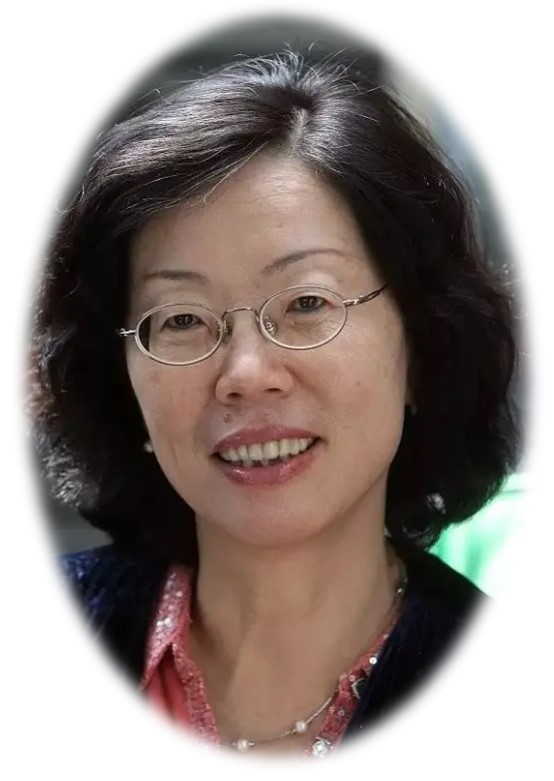Poetry
Modern Chinese Poem ‘To the Oak Tree’ by Shu Ting

致橡树
舒婷
我如果爱你——
绝不像攀援的凌霄花,
借你的高枝炫耀自己;
我如果爱你——
绝不学痴情的鸟儿,
为绿荫重复单调的歌曲;
也不止像泉源,
常年送来清凉的慰藉;
也不止像险峰,
增加你的高度,衬托你的威仪。
甚至日光。
甚至春雨。
不,这些都还不够!
我必须是你近旁的一株木棉,
作为树的形象和你站在一起。
根,紧握在地下,
叶,相触在云里。
叶,相触在云里。
每一阵风过,
我们都互相致意,
但没有人
听懂我们的言语。
你有你的铜枝铁干
像刀,像剑,也像戟;
我有我红硕的花朵,
像沉重的叹息,
又像英勇的火炬。
我们分担寒潮、风雷、霹雳;
我们共享雾霭、流岚、虹霓,
仿佛永远分离,
却又终身相依。
这才是伟大的爱情,
坚贞就在这里:
爱——
不仅爱你伟岸的身躯,
也爱你坚持的位置,足下的土地。

Ming Liu
Gifted by Ming, who warmly addresses me as ‘사랑하는 언니 / sa.ɾaŋ.ha.nɯn ʌn.ni/ – my loving grand sister,’ this poem, treasured since her college days, unveils a captivating tale. Within its verses, the tree portrayed seems to echo Ming’s essence-she is a resilient, self-reliant force of feminine strength. Now, shall we immerse ourselves in the verses my cherished sister holds dear?
To the Oak Tree
Shu Ting
If I love you, I won’t boast like a climbing ivy
Around your tall branches.
If I love you, I won’t become a blind bird
Singing monotonous songs under the green shade of love.
Not confined to the refreshing solace of a perennial spring,
I won’t stop at the towering mountain peaks
That enhance your value and majesty.
Sunlight, nor this spring rain, is not enough.
I will linger by your side like the red cottonwood.
Standing side by side with you,
Our roots intertwined beneath the soil,
And leaves meeting in the midst of clouds.
Each time the wind blows,
We may exchange greetings,
But no one will understand our words.
You’ll have branches like copper and a stem like iron.
Sharp as a knife, a sword, strong as an axe.
I’ll have my own red flower,
Dense as a deep sigh, burning like a torch.
Together, we’ll endure the cold, storms, and thunder,
And revel in dew, mist, and rainbows.
Though it may seem we are always apart,
We are always touching each other.
Only this kind of love is grand.
A love that is faithful to each other.
Loving not only your majestic and magnificent appearance
But also, the solid ground beneath your feet.

Red silk cotton tree

Oak tree


*Bombax Ceiba (Red silk cotton tree)
Shu Ting is one of the well-known new-generation poets in China, recognized from the late 1970s to the 1980s. Her poetry was particularly popular among young people, especially female students, during that time. Shu Ting presented an image of independent women forming equal and deep connections with men, contrasting with traditional and dependent relationships. This new vision of strong femininity gained significant support from young women in higher education at the time.
Born on July 28, 1952, in Longhai City, Fujian Province, Shu Ting grew up in Xiamen. Despite not graduating from high school in 1967, she joined the People’s Liberation Army Production Battalion in the rural areas of Fujian Province, where she developed a love for poetry amid the quiet and challenging rural life. Around 1971, she began writing poetry. Returning to Xiamen in 1972, she worked various temporary jobs until around 1980 when she devoted herself entirely to poetry after moving to Fujian Writers Association.
She published poetry collections such as “Double-Masted Ship” (1982), “Shu Ting and Gu Cheng’s Lyric Perspective” (1982), “The Iris that Can Sing” (1986), “Ancestral Bird” (1992), and “Collected Works of Shu Ting” (1997).
Shu Ting is one of the most representative poets of the Misty Poets in the late 1970s. The Misty Poets wrote vague and misty poetry that differed in nature from the socialist poetry praising Mao Zedong and the Communist Party or describing the reality of socialist revolution. They were officially criticized by the Chinese Communist Party for writing unclear and misty poetry. The Misty Poets transitioned from objective realism to subjective realism, evolving from passive reactions to active creativity.
Shu Ting’s writing style is very straightforward, idealistic, patriotic, yet apolitical. She is skilled at reflecting on her emotional rhythm and captures the complex and delicate emotional experiences unique to women. Expressing her identity and experiences from a female perspective, her ‘self-love’ is depicted through a strong determination for independence, improvement, the certainty of choices, and the establishment of self-esteem.
In Shu Ting’s poem “To the Oak Tree,” she allegorically equates free love between men and women to the camphor tree, portraying a delicate and strong emotion by comparing the beloved man to the ‘camphor tree’ and herself to the ‘red cottonwood.’ In the poems “Under the Tall Branches” and “In the Blue Shade,” she rejects dependent love, expressing a dignified grace in her desire not to rely on anyone, akin to the aloofness of the tall branches of the Bombax Ceiba.

KOH HeeSun
HeeSun, a poet and storybook writer, illuminates the world with her beautiful poems, songs, and stories, bringing hope and inspiration to those fortunate enough to experience her work. Through her global perspective and commitment to creative expression, HeeSun’s contributions extend beyond borders, weaving a beautiful tapestry of artistry that fosters connection and understanding. She is a member of both the International PEN Club and the Arts and Letters Club of Toronto.



